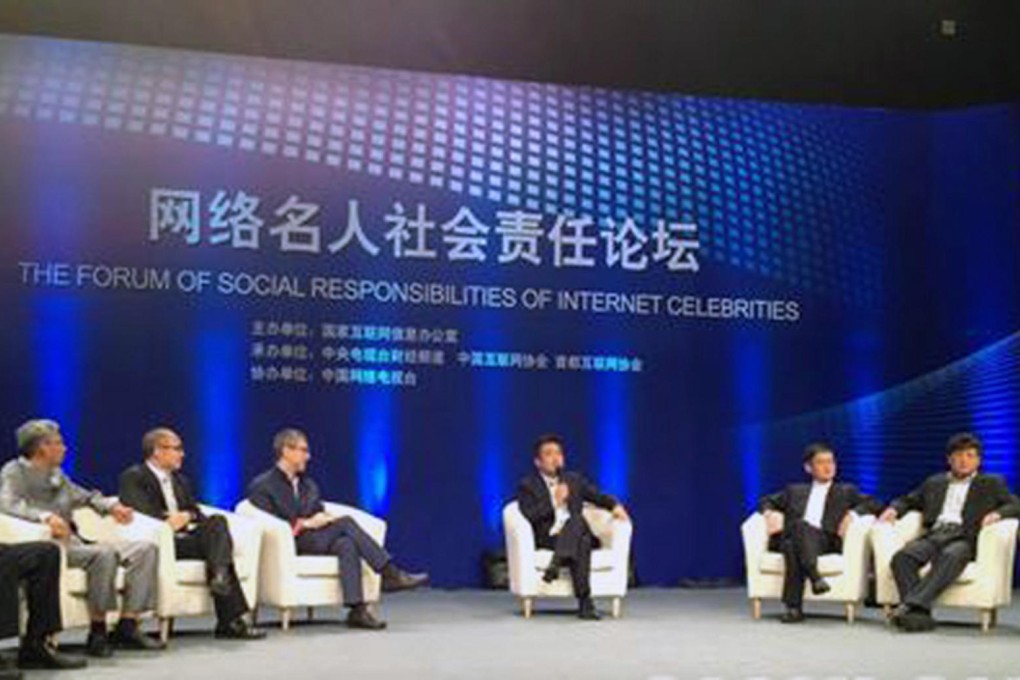Be more positive, Chinese internet tsar Lu Wei tells celebrity weibo users
Internet tsar's remarks seen as another indication of expanded effort to rein in critical posts of microbloggers with large online followings

The national internet tsar's call for a "more positive" discussion online has fuelled new concern about an expanded Communist Party effort to silence internet celebrities whose huge followings make them some of government's most potent critics.
The remarks by State Internet Information Office director Lu Wei at a forum on "social responsibilities of internet celebrities" in Beijing on Saturday appeared to signal tighter internet restrictions on the most-popular microbloggers.
Lu said it was their civic responsibility to "deliver more positive and constructive messages" and "promote virtue and trust" with their comments, according to a statement issued by his office after the forum.
"They shall set an example of protecting the legal rights of citizens and denouncing any activity that harm the reputation and interests of other people," Xinhua quoted him as saying.
Lu was joined on stage by eight "Big V" microbloggers - so dubbed because of their "verified" accounts on Sina Weibo. Among those present were property tycoon Pan Shiyi and business man Charles Xue, who have 16 million and 12 million followers, respectively.
The talk is to air on CCTV-2 on Sunday.